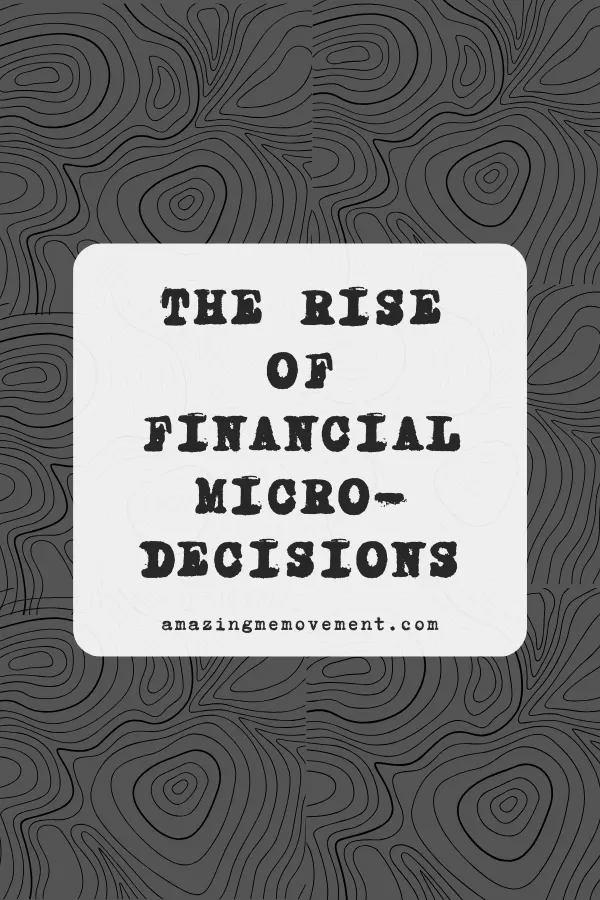Instead of just making a handful of big financial choices, like buying a home or saving for retirement, people now deal with dozens of tiny decisions that add up each day. From picking whether to pay with a card or cash to choosing if that new subscription is worth it, these choices might feel small on their own, yet they shape financial habits over time.
Living in an age of subscriptions, mobile apps, and instant access to purchases means it’s easier than ever to spend without thinking. That’s why focusing on financial micro-decisions has become so important. The way someone handles the everyday details of money often reveals just as much about their stability as the big, long-term plans.
20 Empowering Quotes For Personal Growth And Self-Discovery
Setting Aside Small Safety Nets
Building small reserves through daily money choices helps create a sense of stability.
It can be as simple as transferring a few dollars into savings after skipping a takeout order, or setting up an automatic transfer each week that feels manageable.
These little cushions aren’t about creating a huge savings account overnight, but about getting into the practice of putting something aside regularly for emergencies.
When a sudden bill pops up, those small amounts can be the difference between scrambling and feeling covered.
People often ask, Where should I keep my emergency fund? The answer depends on what feels practical and accessible. Some prefer a traditional savings account that’s separate from their daily spending, while others use high-yield accounts that give them a small return on idle cash.
No matter where it goes, the point is having it set apart from everyday money so it’s there when needed. Framing financial safety nets as part of daily choices makes the habit less intimidating and more approachable.
Using Cash or Digital Payments
Choosing between cash and digital payments has become one of the subtle financial decisions many people face. Digital options are convenient, but tapping a card or scanning a phone can sometimes make spending feel less noticeable.
Cash, on the other hand, creates a physical connection to money, as it leaves your hand, and you can literally see how much remains.
Neither approach is universally right or wrong. Instead, it comes down to knowing which method supports healthier habits for the individual.
Some people may use cash for categories like dining out or entertainment, treating it as a weekly budget. Others may prefer the tracking features of apps and cards to monitor patterns.
20 Quotes On Brilliance That Can Ignite Your Inner Power
Choosing Secondhand for Short-Term Needs
Not every purchase has to be brand new, especially when the item is only needed for a limited time. Furniture for a temporary space, tools for a one-off project, or even clothes for a specific event can often be found secondhand at a fraction of the cost.
The secondhand market has grown significantly, with online platforms making it easier to find items that fit specific needs.
Buying secondhand also brings a sense of practicality; why pay full price for something that may only be used for a few months?
Breaking Down Travel Spending
Travel often feels like a single big expense, but it’s usually a series of small choices that add up. Flights, hotels, food, activities, and even local transport all play a role.
Breaking these costs down into smaller parts makes it easier to see where adjustments can be made. For example, someone might choose a modest hotel but set aside more for food experiences.
That way, the trip reflects what feels most valuable without going over budget.
Thinking of travel in smaller spending decisions also makes saving for it more practical. Instead of treating it as one overwhelming cost, money can be set aside for each category over time.
Planning Gift-Giving Ahead
Gift-giving can easily lead to last-minute spending that feels rushed and more expensive than necessary. Planning helps keep the gesture thoughtful without straining the budget.
Buying gifts earlier in the year or spreading out purchases across months takes pressure off the wallet and avoids overspending during busy seasons.
This kind of planning also leaves room for creativity. Instead of scrambling, people can take time to find items that reflect personal meaning or even make something themselves.
In this way, the habit of preparing in advance transforms gift-giving into an intentional act rather than a financial burden.
Fast Shipping or Waiting
Online shopping has trained people to expect instant gratification, but fast shipping often comes with extra costs.Choosing standard delivery might mean waiting a little longer, yet it avoids unnecessary charges. For items that aren’t urgent, this is a small decision that benefits the budget.
Slowing down in this area also helps curb impulse buys. When shipping isn’t instant, there’s more time to think about whether the purchase is really needed.Often, just waiting a few days changes the perspective and can save money by avoiding items that would have quickly lost their appeal.
Deciding on Loyalty Programs
Loyalty programs promise perks, but not all of them provide real value. Some require spending more than usual just to reach rewards, while others offer benefits that don’t actually match personal habits.
Taking time to evaluate which programs fit daily routines helps avoid unnecessary commitments.
When a loyalty program lines up with existing habits, like a grocery store where someone already shops, it can be worthwhile.
But signing up for too many dilutes the value and creates more clutter to track. Selectivity in this area keeps rewards meaningful and money habits clearer.
Swapping Luxury for Mid-Tier
Not every purchase has to be top-shelf. Choosing mid-tier options in certain areas offers balance without sacrificing quality.
For example, switching from luxury household items to well-made mid-range ones often provides the same function at a lower cost.
This mindset isn’t about cutting back on everything but about being realistic with spending priorities.
Saving money in one category opens room for investing in areas that matter more personally, whether that’s experiences, hobbies, or long-term savings.
10 Let Go And Move On Quotes That Will Set You Free
Evaluating Coffee Shop Visits
Daily coffee runs are a common habit, but they quickly add up. Evaluating whether it’s a daily ritual or a treat helps keep spending aligned with actual priorities.
Some may choose to brew at home during the week and save coffee shops for weekends. Others might decide the daily ritual is worth it, but then budget around it accordingly.
The key is awareness. Recognizing the cost of frequent small purchases provides clarity about where money is going. Once there’s clarity, decisions feel more deliberate rather than automatic.
Financial micro-decisions have become part of everyday life, shaping how people spend, save, and manage their resources.
They may seem small, but each one creates a ripple effect that influences larger financial stability.
In a world full of constant options, small, steady decisions are what keep money habits grounded.
Grateful vs Thankful: Understanding the Powerful Difference
10 Things to Do to Live a Happy Life
How to Be Happy in Life: 15 Things to Dump Right Now
How to Stop Judging Others: 8 Profound Thoughts That Will Help
- Breaking Career Plateaus: How Online Degrees Can Boost Careers – 27/08/2025
- The Rise of Financial Micro-Decisions – 27/08/2025
- How to Stop Self-Sabotaging: 9 Ways to Break Free for Good – 25/08/2025










Leave a Reply